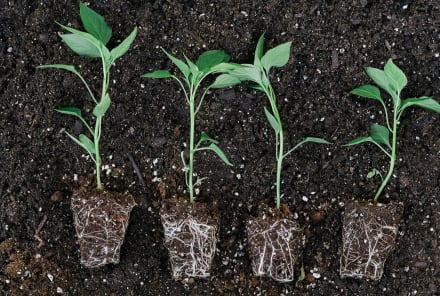Advertisement
Easy & Eco-Friendly Ways To Get Rid Of Old CDs & DVDs

Nothing dampens the satisfaction of a spring clean or decluttering session like a huge pile of stuff you have no idea how to get rid of. CDs, DVDs, and the like compose many a "to toss" bag: Once beloved collectors' items, these discs and their cases are now impossible to use without the right consoles—just circles of plastic sitting in squares of plastic, taking up space.
If you're looking to get rid of old CDs or DVDs, the trash can should be the last resort. Since these discs are made mostly of durable polycarbonate plastics, they'll take thousands, if not millions, of years to decompose in landfills.
Instead, give your discs a second life with these reuse, recycling, and repurposing tips.
Overview of your options:
- If your disc is in working condition: Sell it to be reused on Facebook Marketplace or Craigslist, or go through Decluttr.
- If it's not: Recycle it using Greendisk, or incorporate it into a craft.
Reuse:
If your CDs are still in working order and free of deep scratches or nicks, they can be resold and used again.
Though slightly time-consuming, you can list them on community resale platforms like Facebook Marketplace or Craigslist (or BuyNothing or freecycle if you're not looking to make money off of them).
Donating to a nearby charity, record store, or Goodwill is another option. Be realistic about whether your discs are desirable and in good shape before going this route so you don't inundate places with items they can't sell.
Decluttr is one company that will do the grunt work of reselling for you. They pay you to send them your old but functional CDs, DVDs, and video games, which they then sell on eBay, Amazon, or their e-commerce shop.
The process is straightforward: Download their app or visit their website, scan in your CDs and DVDs to get a price estimate (Decluttr pays around 50 cents for the typical disc but can go up to $3), pack your haul in any box you have handy, slap a free shipping label on it, and send it off to Decluttr. Once they receive it, they'll pay you your fee, or you can opt to have the money donated to charity.
The company buys around 10,000 CDs a day and has found that rarer items can still drum up good money, even with the number of dedicated CD players and consoles dwindling.
"There's still a significant market for physical media," Liam Howley, CMO at Decluttr, tells mbg. "But the more popular it is, the less it gets resold. It's a volume game."
Decluttr can buff away scratches on their end, but they do require that every CD comes with its original bookwork artwork, so this isn't the service for you if you only have the loose discs lying around. That being said: They also accept electronics, books, and Legos by the pound.
Recycle:
If your discs have been separated from their artwork, no longer work, or aren't worth anything on the resale market, the next option is to recycle them.
While curbside recycling programs might accept their plastic cases and booklets, most won't take the CDs themselves—not because they contain hazardous material or are difficult to break down but because it's hard to collect them at the scale needed to send off to a processor.
"With most things, if you get enough of it, it's easy to recycle," explains David Beschen, the CEO at Greendisk. Beschen's company collects high volumes of discs—as well as electronics and small accessories—which their staff then sorts, scrubs of information, and breaks down into their constituent parts to be sold and turned into something new.
Greendisk's Technotrash program allows consumers to buy a collection box (they come in two sizes at $59.95 and $119.95 a pop) and fill it with up to 50 or 100 pounds respectively of hard-to-recycle e-waste, discs, cords, etc., to be safely recycled.
You can bring down the cost of this service by sharing a box with friends and neighbors or asking your community to invest in one for the grocery store or library.
If you don't mind paying the price yourself, you also don't need to fill the whole box up in order to send it in. Beschen says that Greendisk has processed orders as small as a single disc and as large as 20 train cars full of waste, so they'll happily accept that rogue electronics pile sitting in your basement.
If you go this route, your CDs can be incorporated into office equipment, traffic cones, car headlights, computer accessories, or any number of other industrial items.
Repurpose:
And finally, those who have kids or are feeling creative can explore the surprisingly wide world of CD crafts on Pinterest. Use your discs as canvases to paint or draw on, crush them up safely and use them as shiny surface materials, bedazzle them into mobiles, etc.
When it's time to face the music and get rid of old CDs, you have a few options—some that leave you with new artwork and others that can send you off to the tune of a few hundred bucks.











